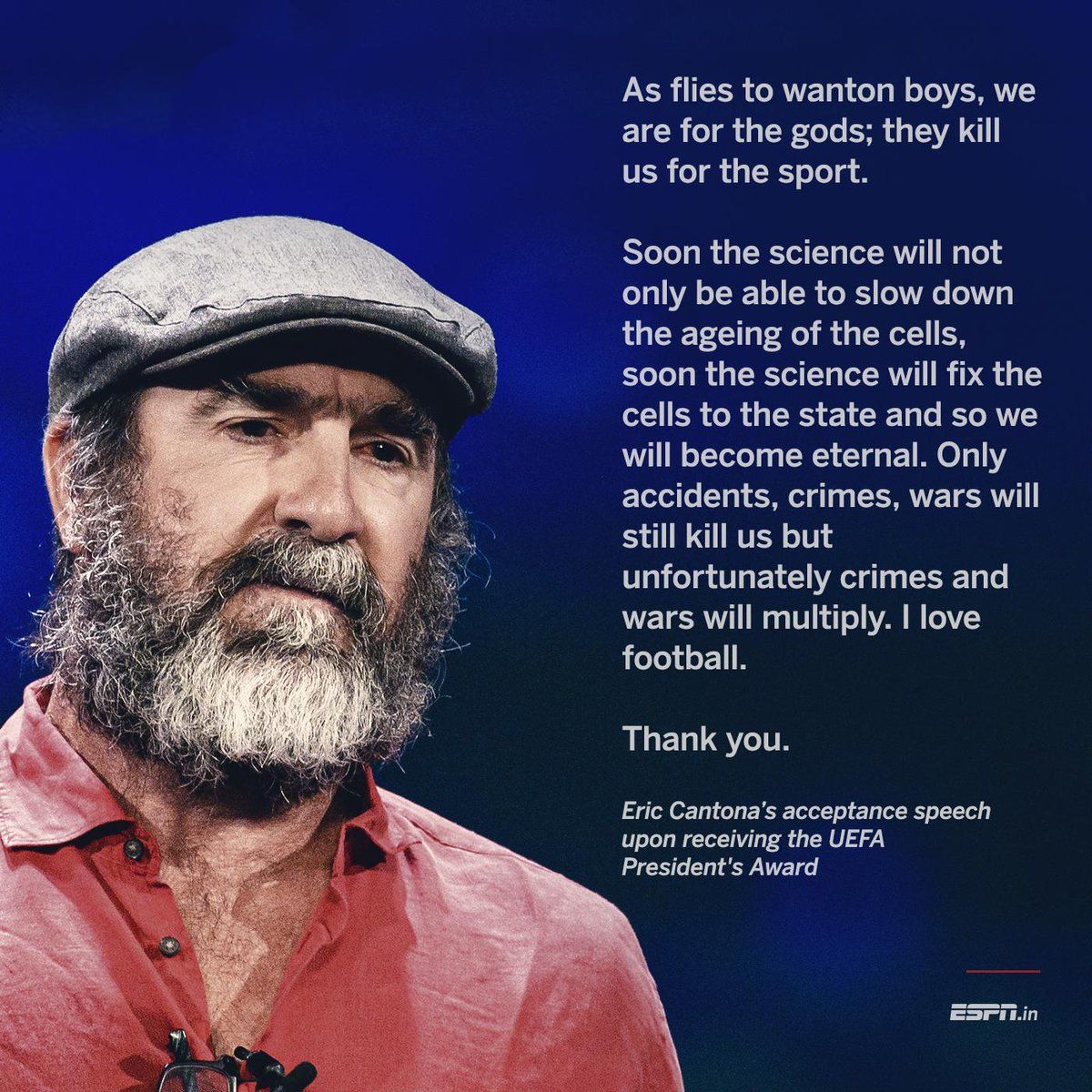Eric Cantona: Was He Truly Speaking Fax?
by Giovanni Bonilla, Form VI
2 min. read — November 10, 2021
The current state of football is vastly different from what it used to be. Now, American owners are taking control of some of the largest clubs in the world, teams are trying to create a European Super League, and teams like Manchester City are paying £100 million for Aston Villa’s Jack Grealish. One prominent figure in world football who expresses these similar sentiments is former Manchester United forward Eric Cantona. In 2019, he delivered a speech to the audience after receiving the UEFA President’s Award for his support of charitable causes, as well as to commemorate his illustrious football career. He is known for delivering very obscure and cryptic speeches, such as his 1995 seagulls and trawlers speech after being suspended for nine months. However, this particular speech really got the world’s attention, as he took a dig at both FIFA and UEFA for their practices. Using vivid imagery and a quote from Shakespeare’s King Lear, he painted both organizations as “Gods” who feed off the dreams of those too young to realize how replaceable they are. He also described this as a repeating cycle because legends continue to be etched in history which will lead to more dreams being born, and thus more people will be exploited.
Because of the way in which he described the cruel cycle in this industry, people argue he was being sarcastic when saying that he loves football. However, maybe he wasn’t. Perhaps he does still love it, and this could also reflect our views of the sport as well. While the higher powers of football practice some questionable acts, we are still glued to the screen. Our focus is always fixed on what goes on in this industry, and that is what they want from us: our attention. A lot of our lives have been built from these rivalries we share between teams, our urges to get out of bed and tune into today’s game, and moments when our favorite team wins the Champions League. It is because of our attachment to this sport that industries can profit off of our emotions while we are merely bystanders, watching the madness unfold. Many people tend to compare this to the Super League mentioned before, where big clubs try to find more avenues to bring in revenue. They say they aim to make soccer bigger than ever and to appeal to all audiences, when in reality, the only things they aim to appeal are their bank accounts. And we can’t help but buy the shirts. Nevertheless, despite all of the corruption, despite the reality of the direction the sport is heading, despite all of this, I love football.
